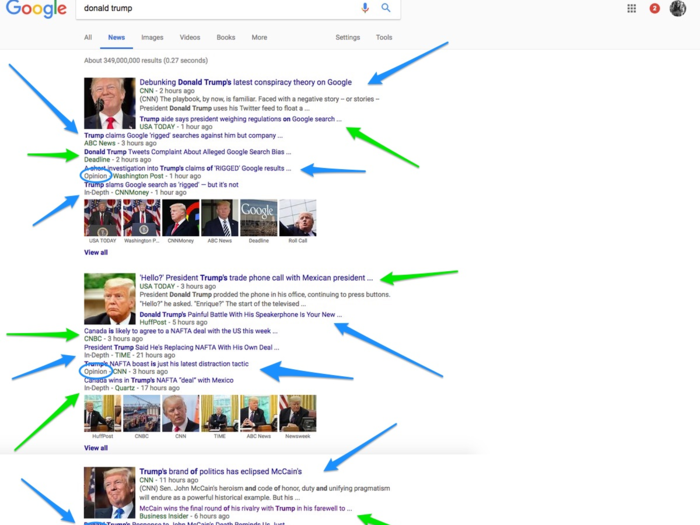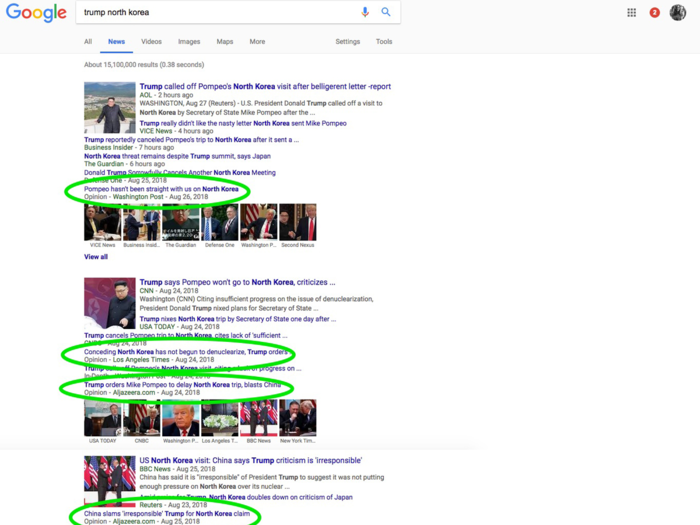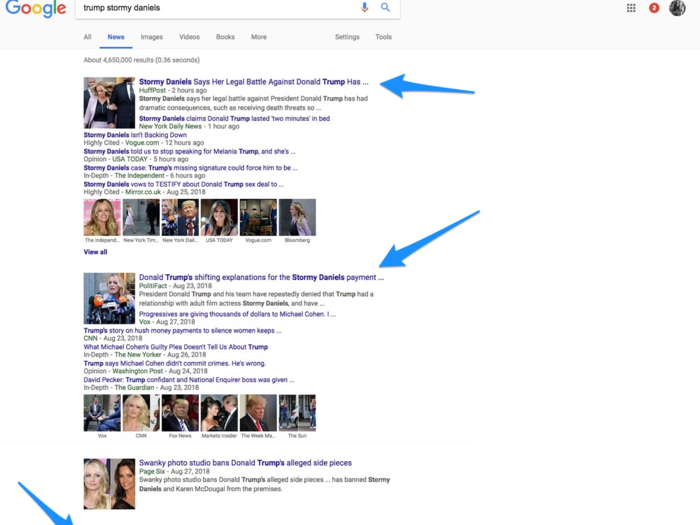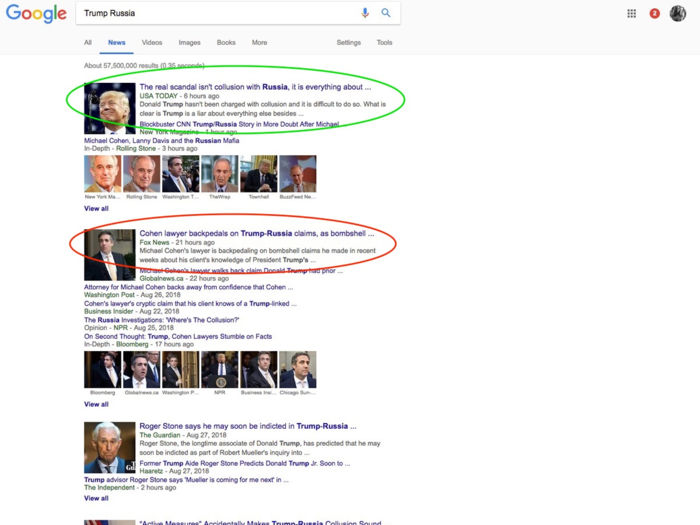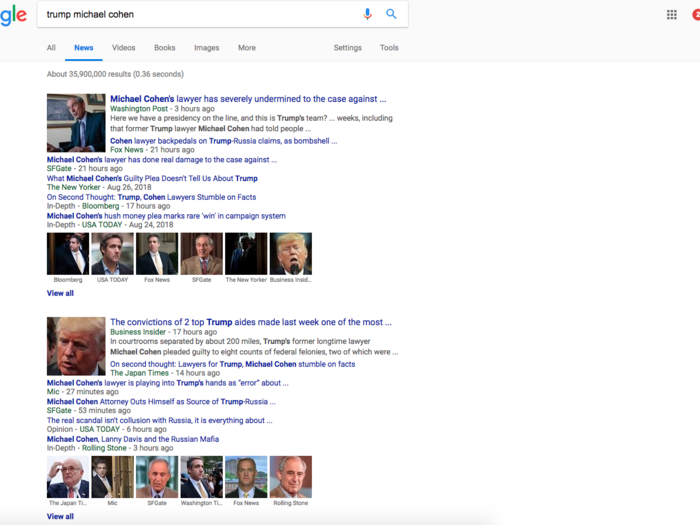Same thing goes if you search Donald Trump's name: you'll get a slew of publications with left-leaning audiences, but also several moderate publications.
Left-leaning audience: 21
Right-leaning audience: 1
Moderate/No clear party affiliation: 15
Opinion articles: 5
When searching "Trump North Korea," you're served with several opinion columns rather than straight news stories. Google marks them with the word "Opinion."
Left-leaning audience: 17
Right-leaning audience: 1
Moderate/No clear party affiliation: 13
Opinion articles: 5
If you search for "Trump Stormy Daniels," you won't see any articles from a major news source with a right-leaning audience.
Left-leaning audience: 15
Right-leaning audience: 0
Moderate/No clear party affiliation: 9
Opinion articles: 3
Typing in "Trump Russia" provided results from a wider variety of sources. The tops result on the first module is from USA Today, considered a publication read by the political middle, while the top result on the second is from Fox News.
Left-leaning audience: 14
Right-leaning audience: 1
Moderate/No clear party affiliation: 7
Opinion articles: 1
While Google Search seems to present news stories from sources favored by more liberal-leaning audiences, there could be plenty of good reasons for that.
In a handful of quick searches, there were zero instances where articles from conservative news sources appeared more often than articles from publications with left-leaning or moderate audiences. But there could be a few key reasons why Google Search showed me stories from sources with more left-leaning audiences.
One reason could be that those are the sources I read on my own time. While I don't often check CNN and it appeared often in my results, I do read stories from The New York Times, Washington Post, and — obviously — Business Insider. I use Google Chrome as my main browser, and it's possible that's the reason those news sources appeared more often for me.
Another reason could be that there just aren't that many center-right publications. According to CJR's analysis, publications like ABC News, Politico, and CNN fall just to the left of center in terms of their readership. But there are very few similar center-right sites. Here's how CJR puts it:
"There are very few center-right sites: sites that draw many Trump followers, but also a substantial number of Clinton followers. Between the moderately conservative Wall Street Journal, which draws Clinton and Trump supporters in equal shares, and the starkly partisan sites that draw Trump supporters by ratios of 4:1 or more, there are only a handful of sites."
Because Google says it's committed to "high-quality content" in response to search queries, it likely steers clear of far-left and far-right media outlets in its results to avoid biased news stories.
In other words, it's possible that Google's search results for Trump news are less biased precisely because of the type of publications that appear in its results.

